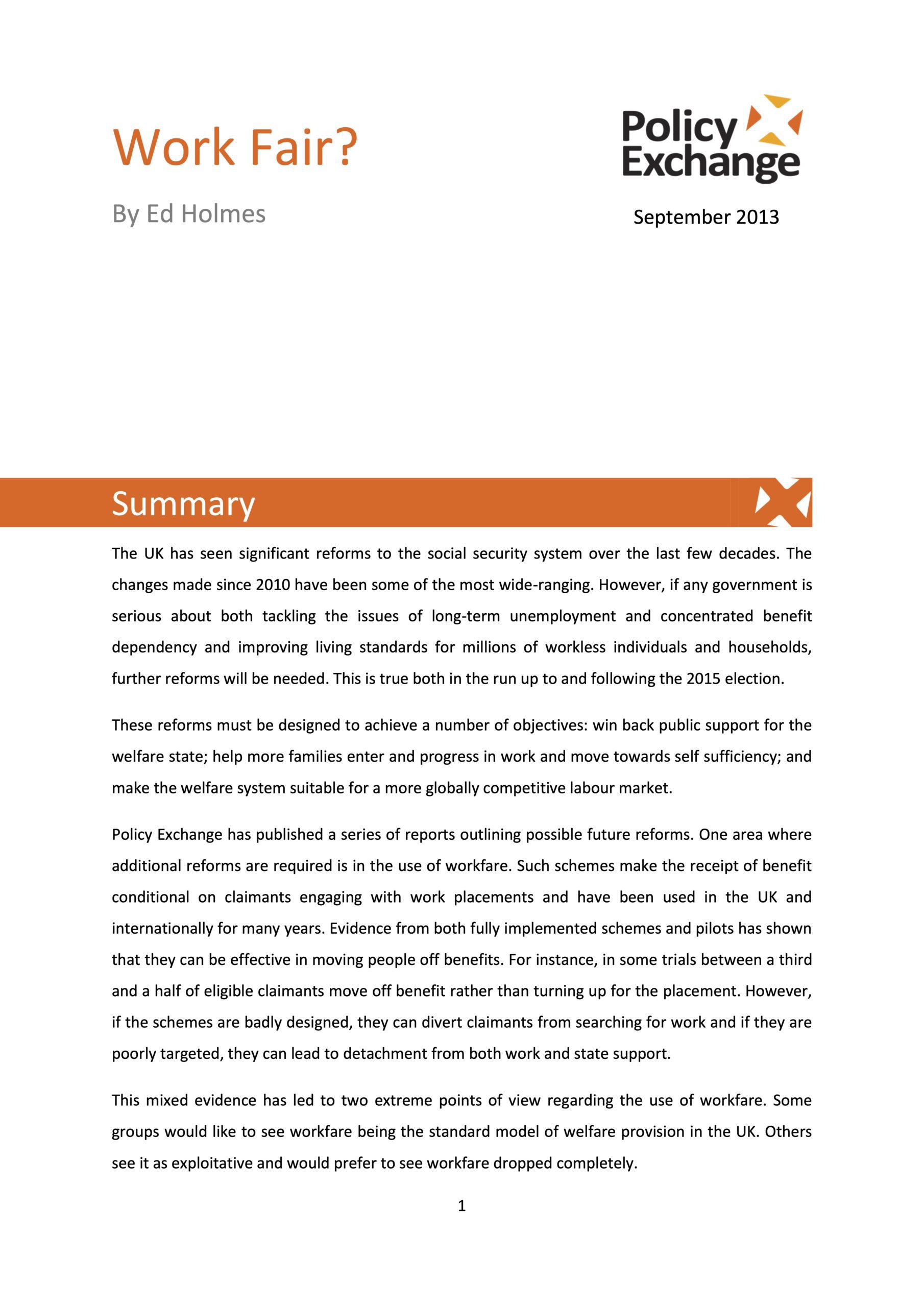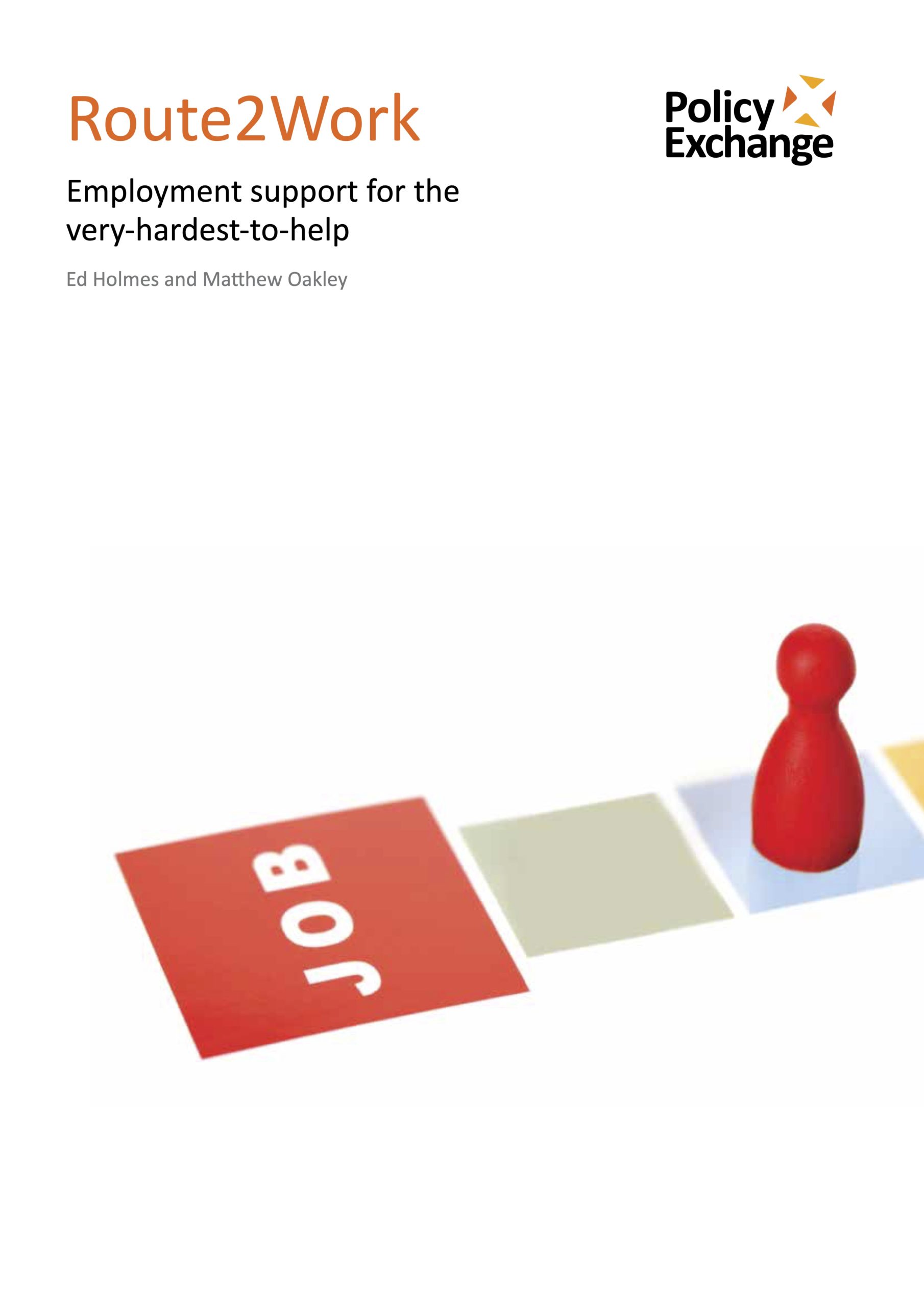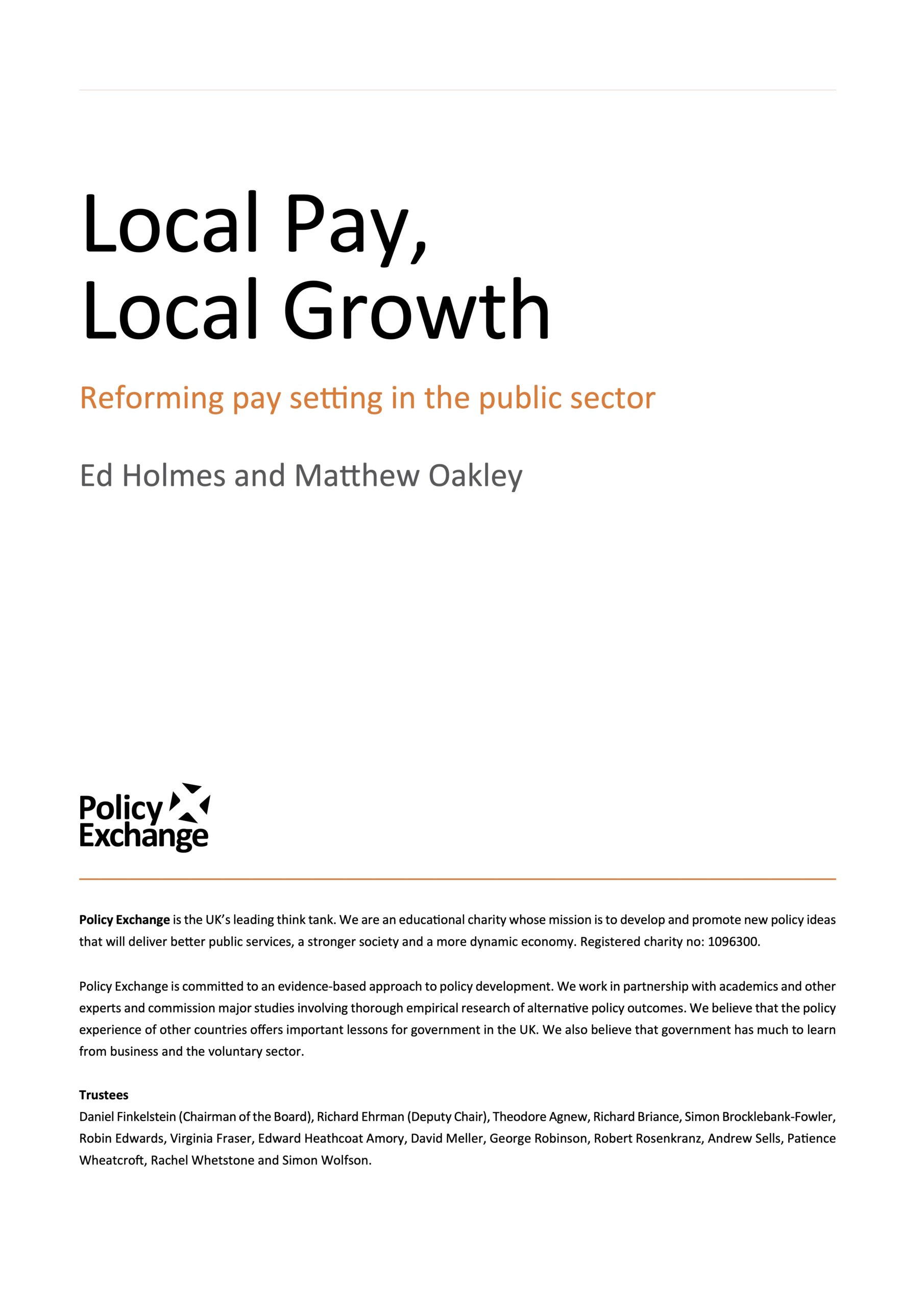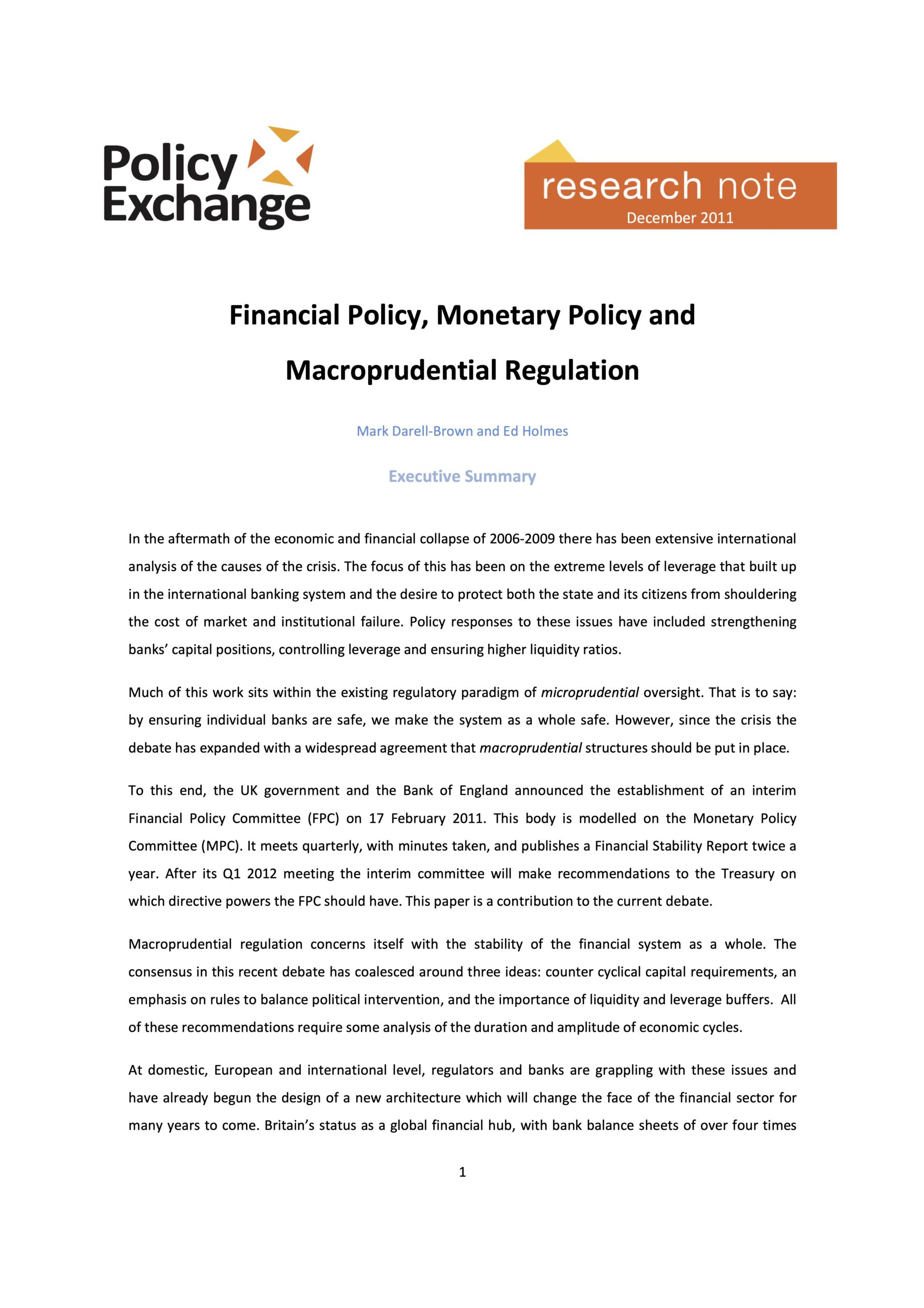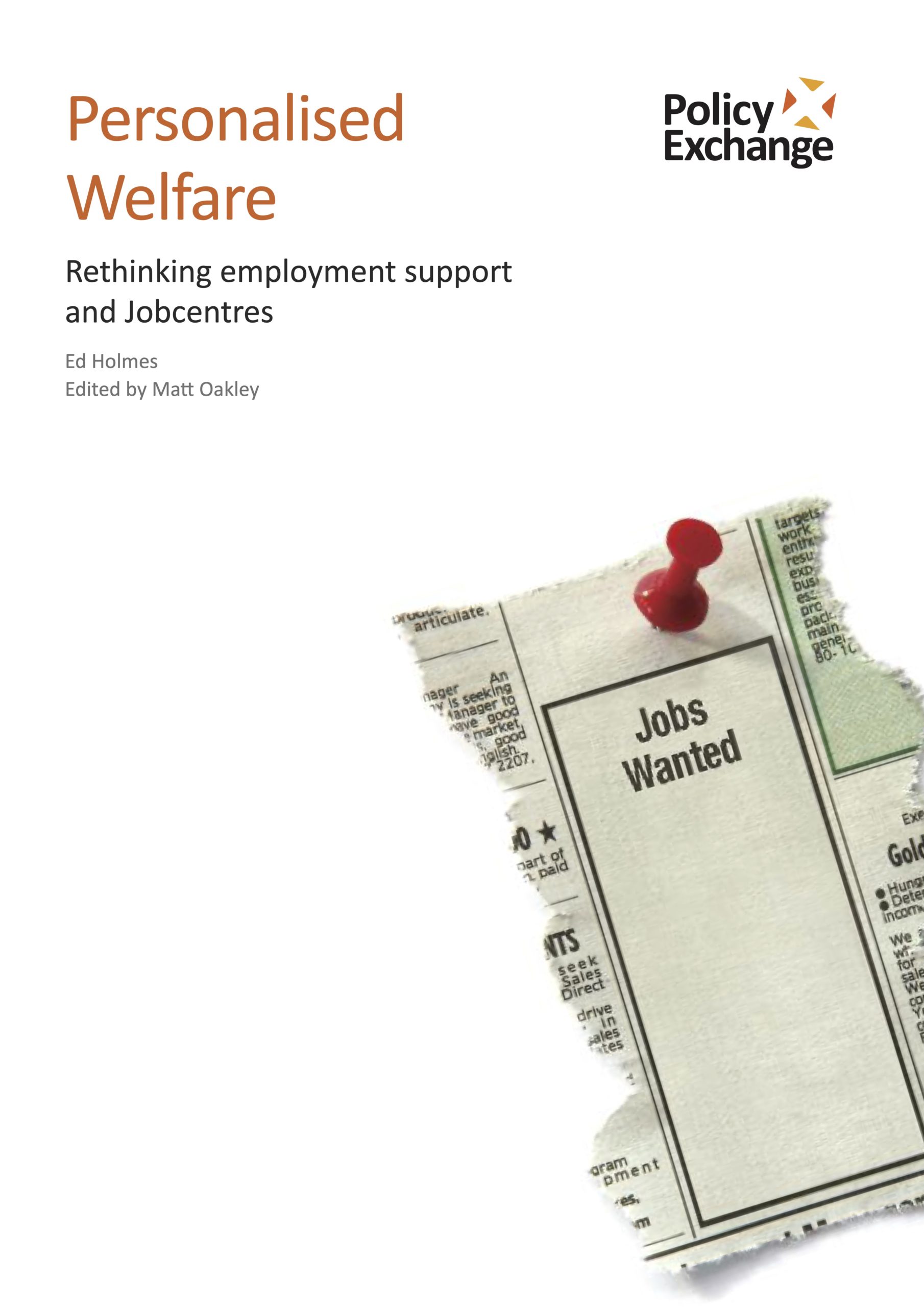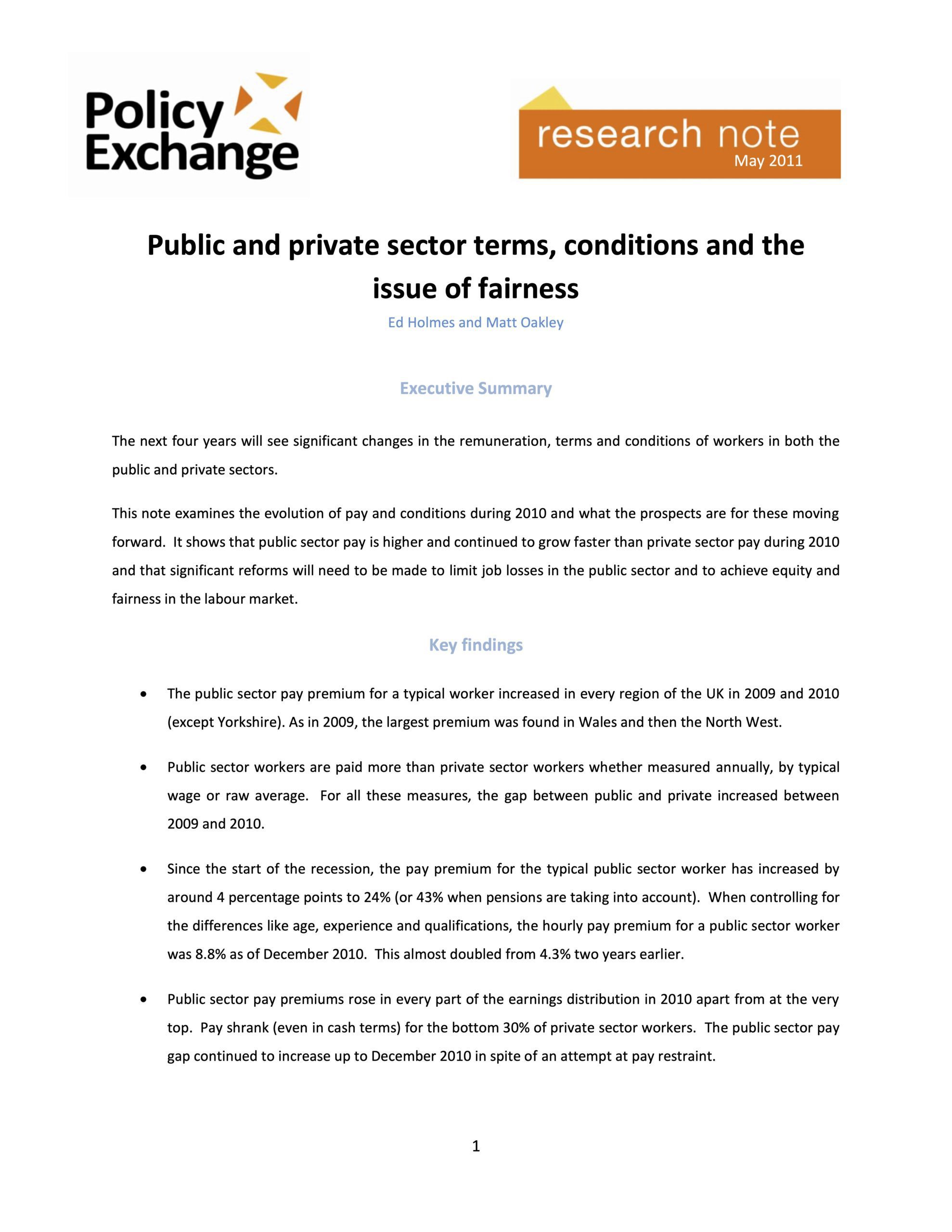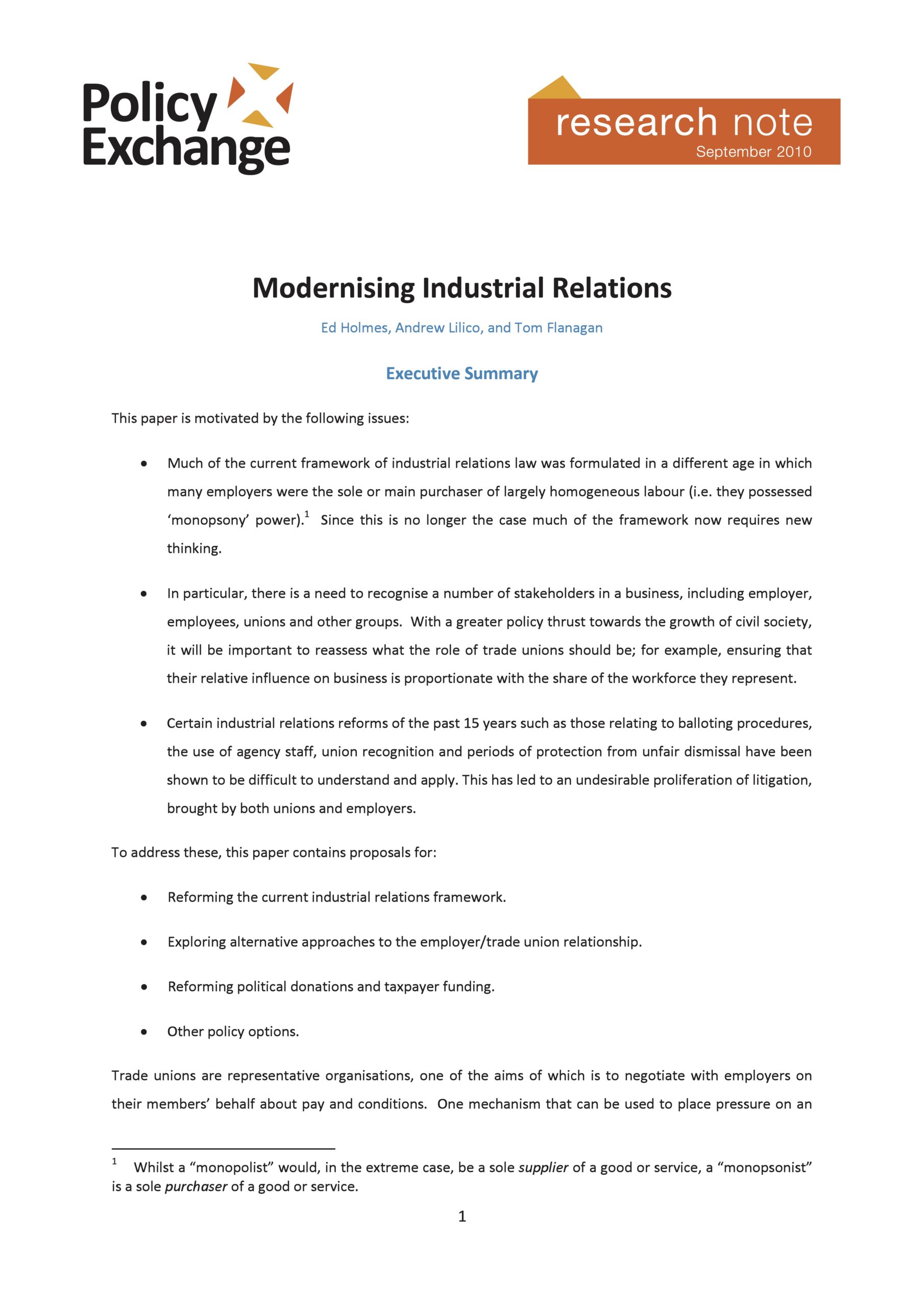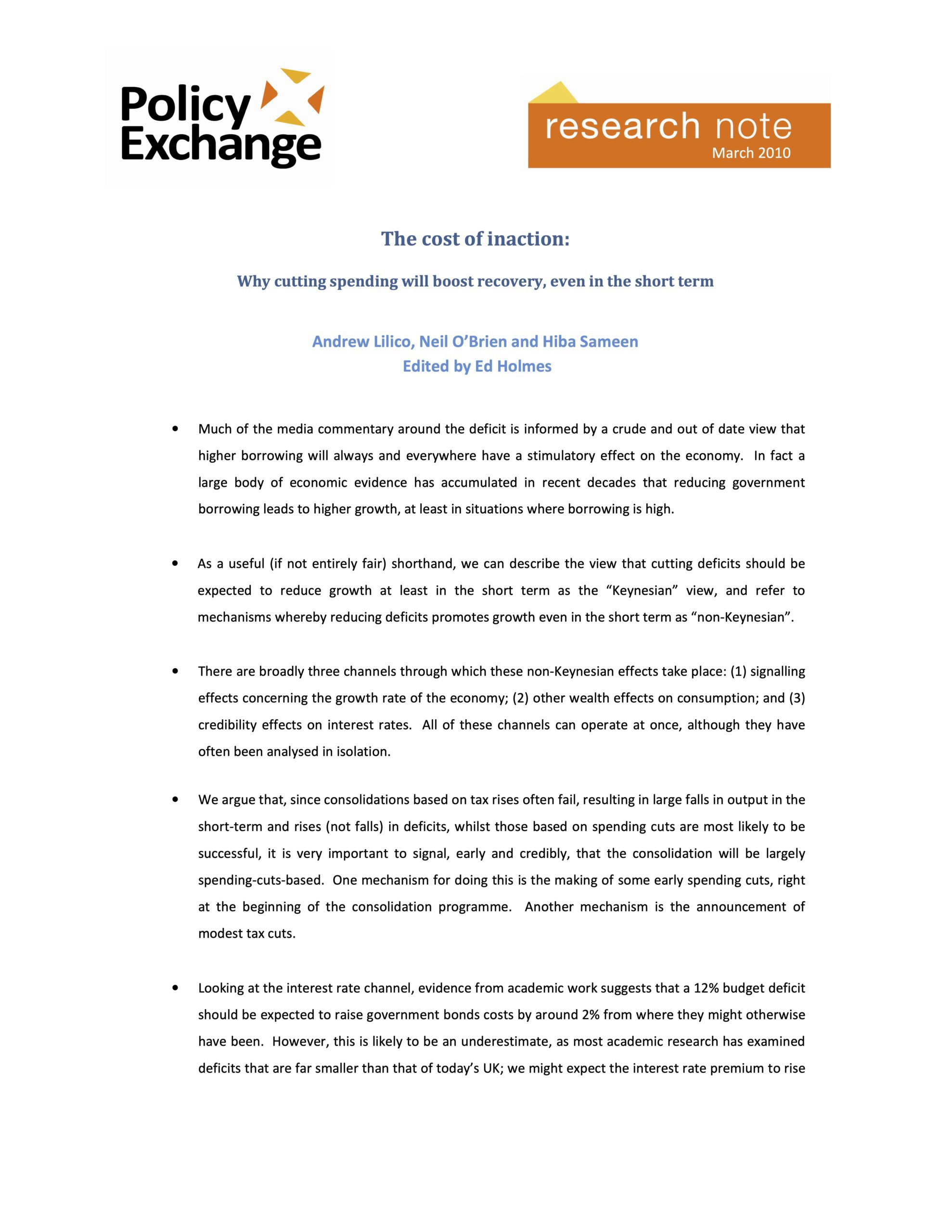Ed Holmes
Senior Research Fellow for Economics & Social Policy, 2009-2013
Ed Holmes is a Senior Research Fellow in the Economics & Social Policy Unit and works on economic and social policy; primarily public spending, taxation policy, welfare reform and fiscal consolidation.Ed read History at Gonville and Caius College, Cambridge concentrating on global financial regulation and management at the Judge Business School where he studied systemic risk and business economics.Prior to joining Policy Exchange, Ed worked for a public affairs company and in Parliament.
Money for Nothing argues that new fiscal rules should bind future governments to a spending envelope based on reducing the UK’s debt-GDP ratio to a sustainable level. The report highlights the scale of the challenge and argues that strict penalties must be put in place to ensure that politicians stay within the rules, including automatic nominal freezes to public sector pay, the state pension and benefit payments.
Work 2.0 provides a blueprint for how the Work Programme – the government’s flagship welfare-to-work policy – should be improved, including ideas on how to better assess jobseeker needs, how to integrate the Programme into the structures of Universal Credit, and how to better recognise local labour market conditions.
New polling conducted for Policy Exchange has found strong public support by a margin of nearly 5 to 1 for the introduction of workfare schemes. While the report warns against rolling out workfare for large numbers of benefit claimants as too costly and potentially detrimental to some, it does argue that the government should pilot workfare schemes for specific groups of jobseekers.
The Work Programme is not doing enough to help those furthest away from the labour market. Route2Work says that paying private and voluntary providers to help people back into work is a sensible approach to reducing unemployment. However, there needs to be a new complementary scheme that encourages and rewards charities, social enterprises and small-scale providers to help the most vulnerable people.
Rebalancing the pay and pensions of public sector workers so that they are in line with that of equivalent workers in the private sector would save £6.3 billion a year in public spending. This money would be better spent on tackling local unemployment and could create at least 288,000 private sector jobs in some of the areas of the country suffering most from the impact of the recession.
This report makes recommendations for a policy framework that can identify and monitor of early warning indicators that signal increased vulnerability in the financial system, and that can rapidly employ policy tools to address these vulnerabilities.
Personalised Welfare: Rethinking employment support and Jobcentres notes serious problems with Jobcentre Plus. JCP’s job search database is severely dysfunctional and JCPs advisers are hamstrung by poor use of information, which gives them only very basic information about the claimants they are trying to help.
This note examines the evolution of pay and conditions during 2010 and what the prospects are for these moving forward. It shows that public sector pay is higher and continued to grow faster than private sector pay during 2010 and that significant reforms will need to be made to limit job losses in the public sector and to achieve equity and fairness in the labour market.
Industrial relations in the UK are in need of significant modernisation. Changes in the nature of employment and the workforce, increased concentration of union membership, the proliferation of litigation over the last decade and the shift in the balance of power to the trade unions has created a situation where the existing framework needs extensive revision,
By Ed Holmes. Edited by Hiba Sameen & Dr Andrew Lilico. The Coalition government plans to cut departmental budgets by 25% by 2014/15. This major report considers how to achieve this for six key departments: Education, Business, Innovation and Skills, Communities and Local Government, the Ministry of Justice, the Home Office and Energy and Climate Change. For these, we examine the status, feasibility and merit for spending reduction for each […]
People used to say that public sector workers had great pensions to make up for their low salaries. That’s now out of date, as public sector workers have much better pay, as well as better pensions and conditions. People in the public sector are better paid and have pensions worth more - while enjoying shorter hours, more time off, and earlier retirement. There is scope to make savings without being unfair.
The report argues that, whilst it has not yet filtered into wider general consciousness, there is a large body of economic evidence suggesting that reducing government borrowing would lead to higher growth, even in the short term (i.e. cutting the deficit early would promote recovery, not endanger it).
Controlling Spending and Government Deficits draws from twelve international and historical case studies in order to examine how Britain might best rid itself of the current overwhelming deficit.
Ed Holmes, Senior Research Consultant for Economics at Policy Exchange, calls on the government to seize the moment in tackling problems in the otherwise successful Work Programme. He sets our recommendations from his recent report Work 2.0 to ensure that the Work Programme works hand-in-hand with Universal Credit, building a more personally tailored employment system and helping getting claimants into 'mini-jobs' and building skills.
Ed Holmes, Policy Exchange's Senior Research Fellow for Economics & Social Policy, sets out the calls from his new report Money for Nothing for a strictly enforced set of fiscal rules to bind future governments into more sustainable spending plans. Such rules would include automatic emergency budgets to hold the government to account when the fiscal rules are breached, increased time for Parliamentary scrutiny of non-compliant budgets, and triggering automatic freezes to tax allowance thresholds, public sector pay and benefit payments.
Ed Holmes, Policy Exchange's Senior Research Fellow for Economics & Social Policy, argues that providing more targeted support for jobseekers and preventing those most vulnerable from being 'parked' in jobcentres, is crucial to prevent the long-term unemployed leaving the labour market altogether. He also sets out Policy Exchange proposals for a payment by results scheme separate to the Work Programme to help smaller and more specialist providers of employment support into the market.
Ed Holmes, Senior Research Fellow in Policy Exchange's Economic and Social Policy Unit, writes that although public sector pay is falling, the public sector still enjoys a 6.1% premium over the public sector. To redress the balance, Ed calls for the abolition of national pay deals and for a more flexible system which more accurately reflects local needs.
Following the publication of our latest research note Public and Private Sector Pay: 2013 Update which examines the regional differences in public and private sector pay, Ed Holmes, Senior Economics & Social Policy Research Fellow, writes that reforming public sector pay will boost employment and generate growth in the regions that need it most.
The Chancellor's announcement of a new fiscal rule to ensure the government runs a surplus is to be commended, writes Ed Holmes, Economics & Social Policy Senior Research Fellow at Policy Exchange. Such measures must be taken to reduce the deficit and to achieve the sound public finances few previous governments have mustered.
Ed Holmes, Policy Exchange's Senior Research Fellow for Economics & Social Policy, sets out our proposed new 'Route2Work' scheme from our report of the same name. The report sets out how we can help get the very hardest to help back into work by giving upfront funding to Route2Work providers based on the calculated amount of benefit their claimants would receive.
Policy Exchange's Ed Holmes, Senior Research Fellow for Economics & Social Policy, and Matthew Oakley, Head of Economics & Social Policy, set out why Jobcentre Plus needs to undergo serious reforms. They argue that currently only half of claimants leaving jobseeker's allowance are still in work eight months later, stressing that Jobcentre Plus does not go far enough in getting people into long-term employment.
Ed Holmes, Policy Exchange's Senior Research Fellow in Economics & Social Policy, highlights the problems with the Work Programme in a letter to The Guardian. Ed says the Programme needs to undergo reforms to ensure the needs of hard-to-help groups of unemployed are assessed as best as possible.
Ed Holmes, Policy Exchange's Senior Research Fellow for Economics & Social Policy, argues that it is too early to judge the success of the Work Programme at this stage and that there are reasons – such as the focus on sustainable employment – to be optimistic about the Programme.
Ed Holmes, Senior Research Fellow for Economics & Welfare at Policy Exchange, argues that rebalancing public sector pay and pensions so that they are in line with that of equivalent workers in the private sector would save £6.3 billion a year in public spending.
Ed Holmes, Senior Research Fellow for Economics & Welfare at Policy Exchange, argues that setting public sector salaries locally could mean thousands of private sector jobs could be created in areas where employment is high, as set out in recent Policy Exchange report, Local Pay, Local Growth.
Ed Holmes, Senior Research Fellow for Economics & Social Policy at Policy Exchange, sets out the arguments in favour of dismantling national pay bargaining as set out in Local Pay, Local Growth. In particular, he stresses the report's recommendation that money saved through pay reform be reinvested in local job creation and infrastructure projects.



